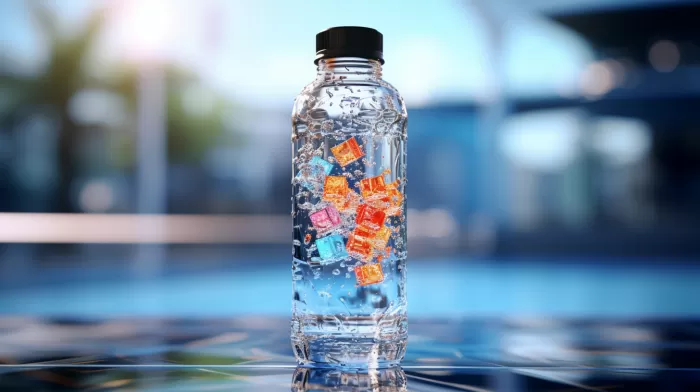You’ve likely heard of bisphenol-A (BPA), a chemical added to plastics to make them soft and pliable. Many manufacturers are now using “BPA-free” plastics to give the impression that their products are safe. However, don’t be fooled – they’re still using bisphenol, just in a different form. The alternative they use is bisphenol-S (BPS), which is still harmful to our health.
The dangers of BPS
While BPA has been widely researched and is known to have detrimental effects on human health, BPS is still relatively understudied. However, the research emerging on BPS is alarming. In one study, BPS was found to cause abnormal brain changes in zebrafish, which share 80% of their DNA with humans. This demonstrates the potential for similar effects on human brain development and function.
In another study, researchers from the University of California, Los Angeles (UCLA), found that BPS speeds up embryonic development and disrupts the reproductive system. BPS altered the fish’s physiology at the embryonic stage in as quickly as 25 hours. This significant impact on embryonic development suggests a high likelihood of adverse effects on human health.
Another critical finding from the UCLA research team is that both bisphenols (BPA and BPS) act partly through fooling estrogen receptors while also partly working through a thyroid hormone system to exert their effects. This dual action in the endocrine system may be responsible for a range of health issues connected to bisphenol exposure, such as hormone-related cancers, obesity, and developmental abnormalities.
Protecting yourself from bisphenol exposure
With the dangers of BPA and BPS becoming more evident, it’s crucial to minimize exposure to these harmful chemicals. Here are some practical steps you can take to protect yourself and your family from bisphenol exposure:
- Avoid plastic containers: One of the primary sources of bisphenol exposure is through plastic food and drink containers. Many products, such as water bottles and food packaging, still contain BPA or BPS. Opt for glass, stainless steel, or ceramic alternatives whenever possible.
-
Check recycling codes: If you do need to use plastic containers, check the recycling codes on the product. Plastics with recycling codes 3 (PVC) and 7 (containing BPA) are most likely to contain bisphenols. Choose plastics labeled with recycling codes 1, 2, 4, 5, or 6, which are less likely to contain harmful chemicals.
-
Avoid microwaving plastics: Heating plastic in the microwave can increase the likelihood of chemicals leaching into your food. Use glass or ceramic containers for microwaving instead.
-
Wash your hands: Regular handwashing can help reduce your exposure to chemicals like bisphenols. This is especially important after handling receipts, which are often coated with BPA or BPS.
-
Eat fresh food: Processed and canned food is more likely to be exposed to bisphenol contamination due to packaging. Opt for fresh fruits, vegetables, and meat whenever possible.
Supporting your body’s natural detoxification
To help your body eliminate bisphenols and other harmful chemicals, support your natural detoxification processes. One simple way to do this is to add a little bit of clove oil to your daily routine. Clove oil contains a compound called eugenol, which has been found to help prevent the absorption of harmful chemicals like bisphenols in the body. Use clove oil in moderation and consult your healthcare provider for guidance on appropriate dosing.
Stay informed and proactive
As a health-conscious individual, it’s essential to stay informed about potential health risks like bisphenol exposure. While BPA-free products may seem like a safer alternative, don’t be fooled by marketing tactics. Both BPA and BPS pose significant health risks and should be minimized as much as possible. By making informed choices, practicing proper hygiene, and supporting your body’s natural detoxification processes, you can help protect yourself and your family from the harmful effects of bisphenols.



